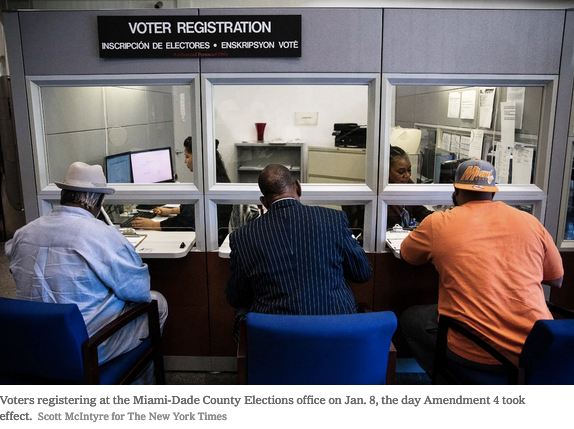Coral Nichols will be eligible to vote when she’s 190. That’s assuming the 40-year-old Floridian — who served five years in prison for fraud and embezzlement, followed by nearly 10 years on probation — is able to keep up with her $100 monthly restitution payments.
Jermaine Miller thought he had fully repaid the $223.80 he owed in restitution for a 2015 robbery and trespass conviction. In fact, he paid $18.20 more than that, but Florida says he still has a balance due of $1.11 because of a 4 percent surcharge on restitution payments. On top of that, Mr. Miller owes $1,221 in court costs and fines, which he doesn’t have the money to pay.
Ms. Nichols and Mr. Miller are two of more than 1.4 million Floridians with criminal records who have spent the last year Ping-Ponging between hope and despair over whether they can exercise their most fundamental constitutional right — the right to vote.
Last November, nearly two-thirds of the state’s voters approved Amendment 4, a ballot initiative that erased Florida’s 150-year ban on voting by people with felony convictions, except for those convicted of murder or sexual offenses. It was one of the nation’s biggest expansions of voting rights in decades. Florida, which was one of just four states that imposed a lifetime voting ban, bars a higher percentage of its citizens from voting than any other state. The state also accounts for more than one in four citizens disenfranchised nationwide.




